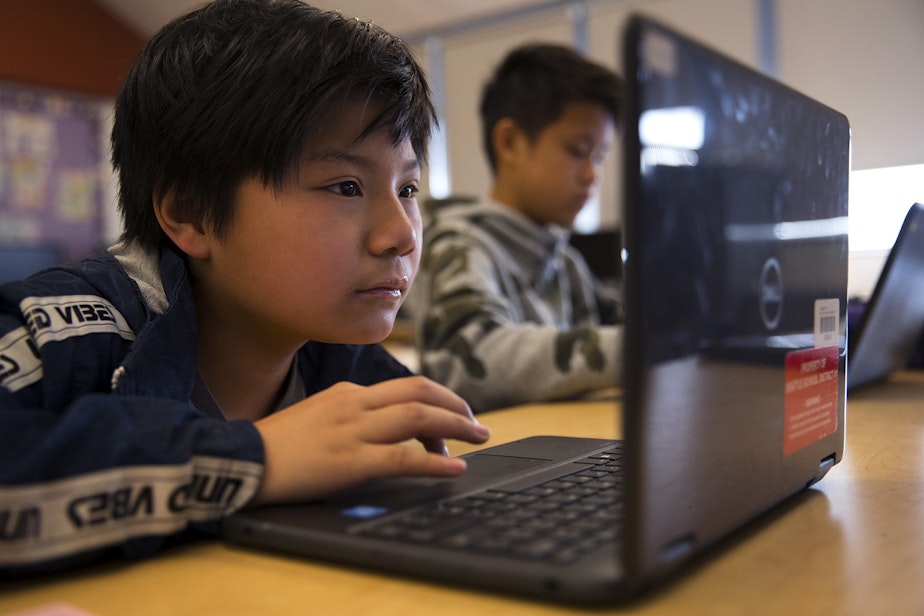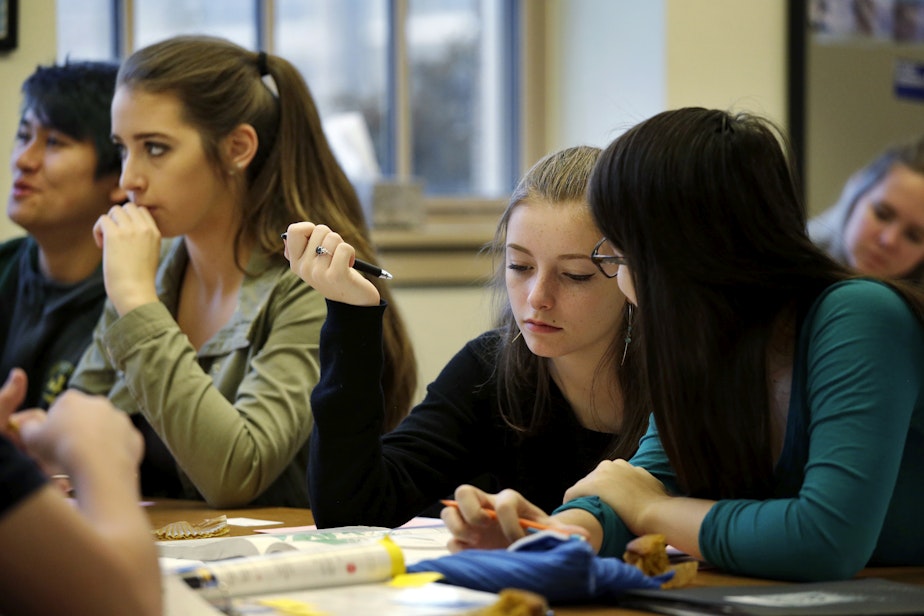Washington schools chief encourages educators to embrace AI and use it in class

Concerns about kids using new artificial intelligence softwares like ChatGPT to cheat on assignments has led some school districts across the nation and state, including Seattle, to ban the technology.
But Washington’s top education official wants educators across the state to embrace AI in the classroom.
The state’s Office of the Superintendent of Public Instruction on Thursday issued new guidance on how schools can — and should — use the rapidly evolving technology to aid teaching and learning.
In a video posted to Facebook on Wednesday, ahead of the release of the guidance, state Superintendent Chris Reykdal said AI has quickly become ubiquitous in our society, and Washington students should be “on the front end” of learning about it.
“It’s everywhere. It’s in things that we can’t even imagine today,” he said. “Don’t our students deserve the opportunity to learn what is it? What’s in there? What are those algorithms doing? How do they impact learning? How do they impact our lives?”
He added: “The most innovative learners in the country and the world should be Washington state kids.”
Washington now becomes the fifth state to issue official guidance of this kind. North Carolina released its guide this week, and Washington’s West Coast neighbors Oregon and California issued advice late last year.
Similar to other states’ approach, Washington’s guidance emphasizes a “human-centered approach” that “prioritizes the needs, abilities, and experiences of students, educators, and administrators.”
The guidance states educators should help build students’ “AI literacy” by helping them understand how it works, then empowering students to use AI as a tool for learning and solving problems.
In turn, the guidance calls for school leaders to provide teachers with sufficient professional development focused on how to incorporate AI in their teaching methods, curriculum, and assessments.
It also emphasizes the need to ensure AI is “ethical, equitable, and safe” by protecting students’ private data, encouraging “digital citizenship and responsibility,” and addressing the potential biases and inaccurate information that AI can generate.
Prior to this statewide guidance, Seattle Public Schools barred students from using ChatGPT on district devices in December of 2022 over concerns students would cheat. But the district changed its policy last fall, and officials say they plan to create a comprehensive plan to integrate AI in instruction.
As far as cheating goes, the guidance says any AI-generated content is plagiarism, unless it’s appropriately cited. And it calls on teachers to clearly communicate their expectations of whether, how, and to what extent AI may be used to complete an assignment.

In the Lake Washington School District, deputy superintendent Scott Beebe says some students have unfortunately used AI to cheat on assignments — especially among teenagers who like to test boundaries.
“That’s the teenage brain, and that’s what it’s supposed to do. It’s to be expected,” Beebe said. “But it’s why we have I think an ethical and moral responsibility as a school district to help kids learn how to use these tools in ways that are more productive.”
But in Lake Washington, Beebe says cheating hasn’t soared the way many expected it to. He also pointed to an October study from Stanford University that found cheating in U.S. schools hasn’t increased since the launch of AI chatbots.
Beebe says there have been other obstacles to implementing AI. Top of the list: AI programs are expensive, and the district hasn’t been able to provide it to all students yet. One pilot program the district was interested in would cost $30 per month, per user.
“When you scale that to a school district with roughly 30,000 students and 4,500-ish employees, you’re talking $12 million plus annually,” Beebe said. “That’s just a non-starter.”
RELATED: New Seattle schools fiscal plan: No closures next year, but 'nothing is off the table'
And it creates equity concerns, Beebe says, if wealthier students have access to this technology and economically disadvantaged students don’t.
Those issues aside, Beebe has already seen the benefits of AI.
Teachers across the district have started using AI to brainstorm lesson plans, grade assignments, and adapt instructional materials to be appropriate based on a student’s age or ability, Beebe said. And students have started using it to help them study and edit essays or other writing assignments.
Those things are invaluable, Beebe said — both for students and teachers, who are often strapped for time. And he’s excited to see what’s to come for the technology, and how it’s used in schools.
“The reality is that when a high school teacher has a caseload or student load of 150 to 155 kids, there’s now way they can provide that level of specific feedback,” he said. “But AI can.”

